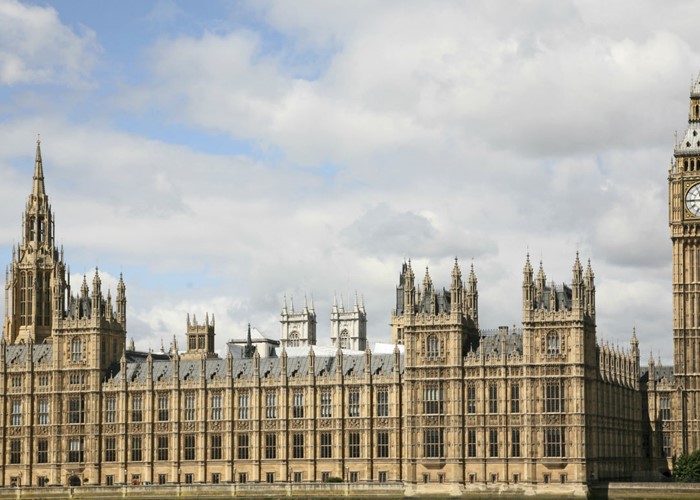Five reasons it's great to be British!

Despite the relentless doom and gloom, these five things should cheer you up.
Almost four years after the phrase 'credit crunch' entered our vocabulary, times are still tough here in Britain.
Even though the UK has emerged from recession and our economy is growing once more (albeit slowly), the news is still filled with doom and gloom. Every day sees reports of high unemployment, rising prices, declining wages, higher taxes and public-spending cutbacks.
It's enough to make you want to crawl back under the duvet and not come out until you see light at the end of the tunnel!
Reasons to be cheerful
However, I'm not convinced that we live in 'broken Britain' quite yet. Sure, we've gone through the longest, deepest depression since the Thirties, but at least that's behind us now.
Likewise, UK unemployment has been rising steeply, but it's levelling off and should start to fall back. What's more, our unemployment rate is 7.8%, which is miles better than in shaky Spain, where more than one in five workers (20.5%) is out of work.
So, without further ado, here are five reasons to be chuffed to be British:
1. Personal wealth
The Office for National Statistics (ONS) produces a yearly report on our personal wealth. In 2009, the ONS found that we owned assets worth £8,775 billion and owed £1,531 billion. In other words, our total net wealth (what we own minus what we owe) was £7,244 billion.
With around 26.2 million households in the UK, this comes to more than £276,000 per household, which puts Brits among the world's wealthiest folk. Surely that's something to be grateful for, agreed?
However, more than half of our wealth (£3,827 billion, or 53%) is in property, which explains our fixation with house prices!
Robert Powell hits the streets to get your thoughts on British Summer Time and bank holidays
2. Household earnings
As well as being richer than most of our European cousins, we also earn more, too.
In 2010, the average household income in the UK was just over £35,000, according to business consultancy CACI. This is about two-fifths (40%) more than the European average of around £25,000 a year.
Then again, we work longer hours than most of our Continental counterparts. According to the Trades Union Congress (TUC), full-time employees in the UK work an average of 43.5 hours a week, versus 38.2 hours in France and 39.9 hours in Germany.
3. Rip-off luxuries, but low-cost essentials
Among producers of expensive items such as consumer electronics and cars, Britain has long been known as 'Treasure Island'. This is because these firms happily charge more for their goods in the UK than in the US, Europe or Asia.
For example, Apple sells its entry-level iPad 2 for $499 in the US. At $1.65 to the pound, this comes to under £303. However, Apple sells the same gadget for £399 in Britain. This mark-up of nearly a third (32%) can't be explained away by different taxes or other excuses, so we're being ripped off.
Then again, thanks to fierce competition on the high street between leading supermarkets, the cost of everyday essentials is lower in the UK than in most of Western Europe.
As the 'Big Four' supermarkets (Tesco, ASDA, Sainsbury's and Morrisons) try to win market share by slashing prices, these 'discount wars' benefit British shoppers.
Supermarket surveys repeatedly find that a basket of essential household items costs considerably less in the UK than it does in other major European countries. So, for everyday basics, Tesco is likely to be cheaper than, say, Carrefour in France or Edeka in Germany.
4. Free banking
Here in the UK, if your current account is in credit, then you're unlikely to be charged a monthly fee or charged for everyday transactions, such as cash withdrawals, cheques, direct debits, standing orders, etc. Such fees are the norm only for those using packaged bank accounts or private banking.
Rachel Robson highlights three ways to tackle your overdraft and get rid of it for good.
Although free banking is something that most of us take for granted, it's remarkably rare outside of the UK. In the US, Canada, New Zealand, Australia, Europe and elsewhere, in-credit bank charges are standard. Even when they're in credit, foreigners pay monthly fees and cash-machine charges, which can add up to hundreds of pounds a year.
What's more, going overdrawn without permission over here usually means getting a warning letter and, say, a £35 penalty charge. However, in France, borrowing without approval can land you in court; in America, 'bouncing' too many cheques can see you charged with 'wire fraud'!
5. Cheap culture
I live in an area which -- thanks to its ancient history and architecture -- attracts lots of foreign visitors. During Easter, my high street was bustling with French, Italian, German and American tourists.
What surprises many visitors is how inexpensive it is to soak up British heritage. Indeed, our friends from abroad can visit dozens of British museums, art galleries, cathedrals and churches at little or no cost.
Thanks to financial support from the government and Church of England, both Brits and foreigners can enjoy some of the UK's finest attractions free of charge (not forgetting our world-famous countryside, of course).
Finally, as I often tell my young children, they are very fortunate to be born in such a prosperous, stable, democratic country as Britain. Of the 6.7 billion people on Earth, only 61 million live in the UK, so being British is a 110-to-one shot. Personally, I'm grateful to have done so well in the lottery of life!
More: Start saving for a brighter future | The multi-car insurance rip-off! | Reclaim thousands after PPI court ruling
Comments
Be the first to comment
Do you want to comment on this article? You need to be signed in for this feature